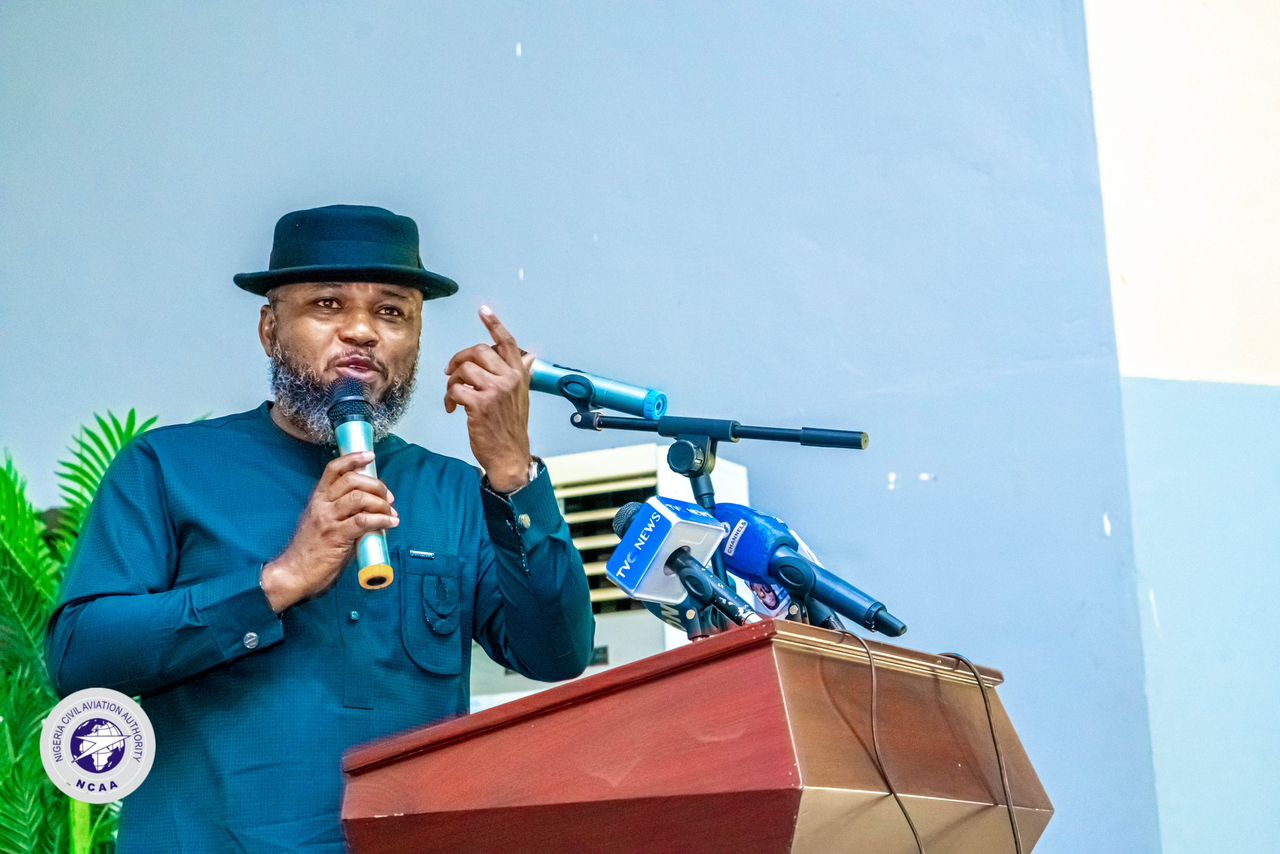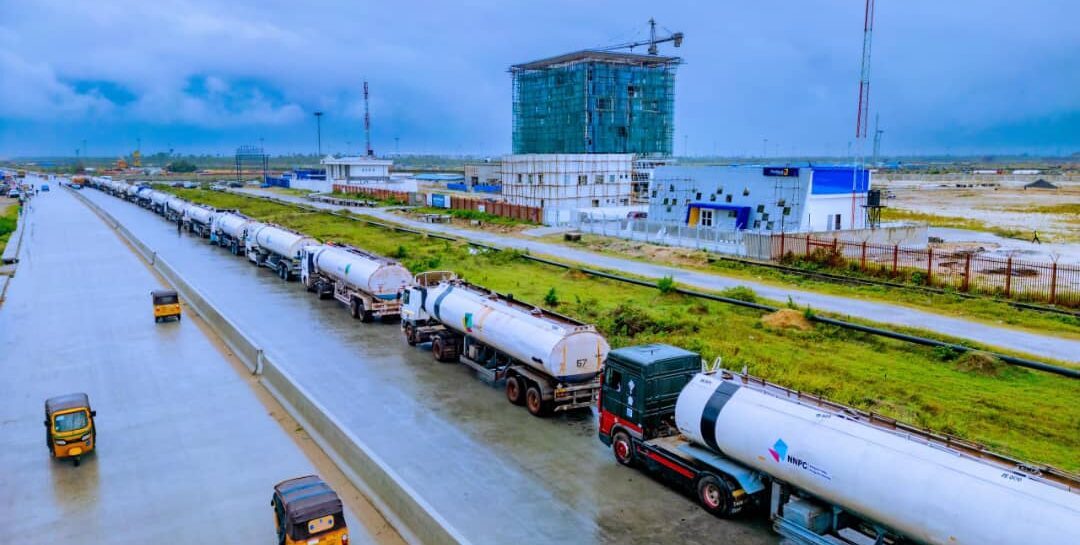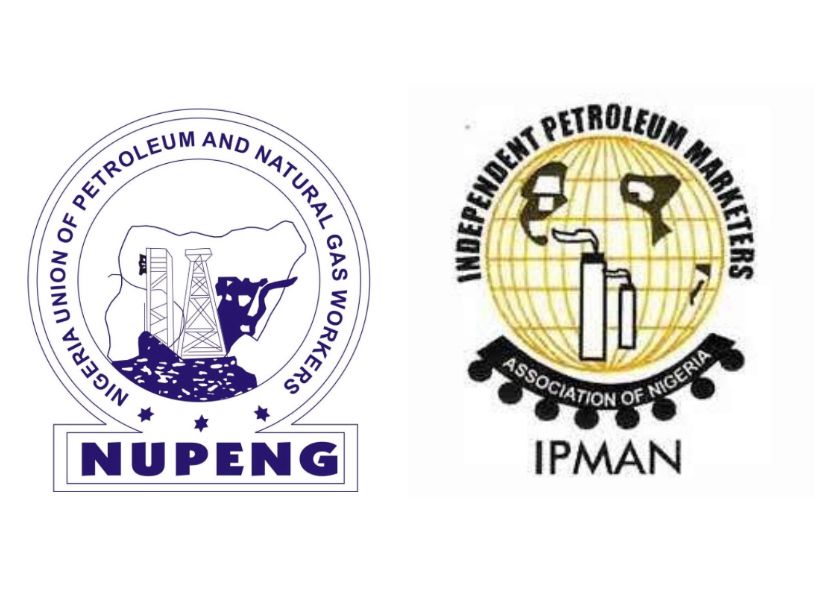ADC Celebrates as INEC Confirms David Mark National Chairman, Aregbesola Secretary
ADC Celebrates as INEC Confirms David Mark National Chairman, Aregbesola Secretary
•Opposition party to Senate, Akpabio: Akpoti-Uduaghan’s suspension has lapsed, further obstruction abusive
•Says Senate’s treatment of female senator may further hinder women’s political participation
•Accuses APC of stifling opposition in Lagos
•2027: Electoral body, stakeholders decry premature political campaigns
•Yakubu: It undermines INEC’s ability to track campaign finance limits
•Jega: Premature campaigns raise serious challenges to conduct, preparation for 2027 elections
Chuks Okocha, Adedayo Akinwalr in Abuja and Sunday Ehigiator in Lagos
African Democratic Congress (ADC) yesterday hailed the confirmation of David Mark as its National Chairman and Rauf Aregbesola as National Secretary by the Independent National Electoral Commission (INEC), in what marked a new phase in the party’s leadership.
ADC commended the electoral body in a post on X by its National Publicity Secretary, Bolaji Abdullahi.
However, ADC condemned the continued obstruction of Senator Natasha Akpoti-Uduaghan’s return to the senate after the expiration of a controversial six-month suspension imposed on her by the upper chamber.
The opposition party described the recent impediments to the resumption of legislative duties by the senator for Kogi Central Senatorial District as abusive and a flagrant affront on Nigeria’s democratic values.
ADC said the senate’s treatment of the female senator might further impede women’s political participation in the country.
Equally, yesterday, the Lagos State chapter of ADC accused the ruling All Progressives Congress (APC) in the state of orchestrating a campaign of intimidation against opposition parties.
ADC’s position came as INEC and other stakeholders in the election management process decried the premature campaigns by political parties, their supporters, and candidates ahead of the 2027 general election, even before the release of the timetable and schedule of activities for the polls.
Reacting to the recognition of the ADC leadership by INEC, Abdullahi wrote yesterday, “We congratulate ADC members and all lovers of democracy in Nigeria. We commend @INECNigeria and its Chairman, Prof. Mahmood Yakubu, for standing on the right side of history and for standing up for the cause of multi-party democracy. Arise and shine, Nigeria!”
In a change of the party’s particulars on its website, INEC listed the new executive members of the party, confirming the resolution of months of leadership tussle within ADC. The commission further recognised No. 4, Oyo Street, Area 2, Abuja as the registered office of the coalition party.
Similarly published on INEC’s website was Mani, Ibrahim Ahmad as ADC National Treasurer; Akibu Dalhatu as National Financial Secretary; and Professor Oserheimen Aigberaodion Osunbor as National Legal Adviser.
Nafi’u Bala, a former governorship candidate of the party in Gombe State and ex-National Deputy Chairman, had declared himself the interim national chairman of ADC.
ADC to Senate, Akpabio: Akpoti-Uduaghan’s Suspension Has Lapsed, Further Obstruction Abusive
ADC condemned the continued obstruction of Akpoti-Uduaghan’s return to the senate, describing it as abusive and an affront on Nigeria’s democratic values.
In a statement signed by its National Publicity Secretary, Mallam Bolaji Abdullahi, the party accused the senate leadership of defying both legal precedent and moral responsibility by refusing to allow the Kogi Central lawmaker to resume her duties after serving a six-month suspension.
ADC warned that the ongoing blockade reflected a broader APC government’s anti-democratic temper, which had sought to silence opposition voices and punish dissent. The opposition party concluded that singling out Akpoti-Uduaghan for such harsh treatment might further suppress women’s political participation.
ADC said it observed with deep concern the continued obstruction of Akpoti-Uduaghan from resuming her seat in the senate after the completion of her six-month suspension.
Abdullahi stated, “We consider this development not only malicious, but also deeply injurious to the spirit of our constitutional democracy, especially the right to dissent.
“It is important to recall that the suspension of Senator Natasha was imposed by the Senate, not by a court of law. And whether one agrees with the basis for that decision or not, the tenure of that disciplinary action has lapsed. Any further attempt to prevent her from resuming is, therefore, both illegal and morally indefensible.
“This is not about partisan politics. It is about a dangerous precedent being set within our legislative institutions, one that reduces democratic representation to the whims of a few individuals rather than the will of the electorate. It is about a political culture that appears more invested in punishing dissent than in upholding justice.”
The coalition party added, “Let it be clearly stated, the people of her constituency elected Senator Natasha Akpoti-Uduaghan to speak on their behalf. Denying her access to the chamber is, by extension, denying her constituents the right to be heard.
“It is especially troubling that during the course of her suspension, Senator Natasha was denied her salary, legislative aides, and access to her office. These are not privileges, but instruments of public service. To strip an elected senator of these tools is not discipline, it is institutional mugging.”
ADC said, “Even more disturbing is the posture of the senate leadership, which has continued to act as though legislative power can be exercised without accountability.
“We challenge the senate president and his colleagues to explain why a suspension that has run its course should be made indefinite by stealth.”
Abdullahi said several respected Senior Advocates of Nigeria (SANs) had rightly observed that Akpoti-Uduaghan’s suspension, having fully lapsed, could no longer be used as a justification to deny her return.
ADC added, “A pending legal appeal does not suspend constitutional rights, nor does it grant any official the power to override the mandate of the electorate.
“To continue barring her from office is, therefore, a violation of the constitution. The senate, as the nation’s highest law-making body, must not be seen to violate the very laws it exists to uphold.
“We also note with concern the clerk of the National Assembly’s refusal to process her resumption because the matter is subjudice. While the clerk may claim administrative caution, what is being projected is administrative complicity.
“His role is not to adjudicate but to facilitate. When the administrative machinery becomes hostage to political interests, the institution itself is diminished.”
ADC stressed, “Senator Natasha is one of only four women in a Senate of 109 members. Nigeria’s paltry female representation of 2.7 per cent is already among the worst records of women’s political participation, even in Africa.
“Any action that resembles gendered intimidation of the few women in the senate would only discourage women’s participation and make Nigeria appear even worse in the eyes of the world.”
ADC Accuses APC of Stifling Opposition in Lagos
The Lagos State Chapter of ADC accused the ruling APC of organising a campaign of intimidation against opposition parties in the state.
In a statement issued yesterday, signed by the party’s leader, Hon. Rahman Owokoniran, ADC alleged that Governor Babajide Sanwo-Olu’s administration was “running a Gestapo reign” in Lagos by disrupting lawful political gatherings and infringing on the freedom of association.
Owokoniran’s remarks followed reports that hoodlums, allegedly acting at the behest of the state government and APC, disrupted a rally organised by ADC in Alimosho, where the party formally welcomed former Labour Party (LP) governorship candidate, Mr. Gbadebo Rhodes-Vivour, into its fold.
Owokoniran stated, “The ruling party’s manipulation of the masses to gain easy access to power in 2027 has been foiled by the ADC coalition tactical strategy, which has proven to be viable, effective, and reliable.”
He added, “The occurrence in Alimosho is just one in a series of orchestrated plots to stifle opposition in the state.”
The ADC leader cited several incidents in recent weeks, including the sealing of a rally venue in Surulere and the forcible takeover of another fully paid venue in Alimosho, as evidence of what he called a pattern of harassment.
Owokoniran said, in the statement, “On Wednesday, our venue at Surulere event was sealed, we had to move to a member’s property. On Saturday at Alimosho, another fully paid-for venue was forcefully taken over in a bid to stall the coalition event. Couldn’t they reason that since they failed to stop the unveiling of the coalition in July, they would not be able to stop the people’s movement?”
Owokoniran insisted that the unveiling of the ADC coalition was a “formal quit notice” to APC, warning that “harassments and intimidations will not help the standoff between us and the ruling party in this election cycle”.
The party urged APC to focus on governance instead of obstructing opposition activities.
“You can block our gathering, but you can’t block the heart of the people, who have long rejected the policies of your government’s long-awaited solution to the lingering economic crisis in Nigeria,” Owokoniran told APC.
According to Owokoniran, ADC has emerged as the “true opposition party” in Lagos, determined to “rescue the people’s mandate captured by self-acclaimed progressives now showing their true colours and baring despotic fangs”.
He added, “It will be better for the APC government to concentrate on whatever it could do to improve people’s wellbeing within the limited time left because what they are trying to stop are mere mobilisation and affirmation ceremonies.
“The coalition has been concluded and already sealed in our hearts. They can, therefore, hinder our ceremonies but it is too late to abort our resolve.”
2027: INEC, Stakeholders Decry Premature Political Campaigns in Nigeria
Ahead of the 2027 elections, INEC and other stakeholders in the election management process decried premature campaigns by political parties before the release of the election timetable and schedule of activities.
The stakeholders spoke yesterday in Abuja, at a one-day roundtable on the challenges of premature/early political campaigns in Nigeria.
Speaking at the event, INEC Chairman, Professor Mahmood Yakubu, said the purpose of the roundtable was to discuss the disturbing trend of campaigning in public for elections, specifically the off-cycle governorship elections, the Federal Capital Territory (FCT) area council elections, and the 2027 general election, long before the period earmarked for such activity under the law.
Yakubu stated that Section 94(1) of the Electoral Act 2022 prohibited the commencement of campaigns earlier than 150 days – five months – before polling day, and provided that campaigns must end 24 hours prior to that day.
The chairman explained that the idea was to prioritise governance over electioneering from one electoral cycle to another.
According to him, political parties, candidates, and their supporters seem to be perpetually in election mode, even when the electoral commission has yet to release the timetable and schedule of activities for elections or ahead of the timeframe provided by law.
Yakubu said around the country, they had seen outdoor advertising, media campaigns, and even rallies promoting various political parties and candidates.
He stated, “These actions and activities undermine the commission’s ability to track campaign finance limits, as politicians, prospective candidates, and third-party agents expend large amounts of money that cannot be effectively monitored before the official commencement of campaigns.
“Quite correctly, Nigerians expect INEC, as registrar and regulator of political parties, to act in the face of the brazen breach of the law on early campaign.
“However, the major challenge for the commission is the law itself. Sections 94(2) of the Electoral Act 2022 imposes sanctions, albeit mild (a maximum amount of N500,000 on conviction), on any political party or a person acting on its behalf who engaged in campaigns 24 hours before polling day.”
The chairman lamented that there was no sanction whatsoever concerning breaches for campaigns earlier than 150 days before an election.
“Here lies the challenge for the commission in dealing with early campaigns by political parties, prospective candidates and their supporters,” he stated.
Yakubu pointed out that while the problem of early campaigns in Nigeria was not new, the seeming inability of the commission and other regulatory agencies to deal with the menace within the ambit of the existing electoral legal framework called for deep reflection.
He stressed that it was in that context that INEC considered it appropriate to convene the meeting in which legislators, leaders of political parties, civil society organisations, experts, practitioners, and regulators will brainstorm on the way forward.
Chairman, Board of The Electoral Institute (TEI), Professor Abdullahi Zuru, said Nigeria’s democracy was still in transition, and like every evolving system, faced serious challenges.
Zuru believed one of the most worrying challenges was the increasing resort to early campaigns by political actors and their surrogates in many forms.
He stated, “We have seen aspirants use cultural festivals and religious gatherings to drop hints about their ambitions, often disguised as appreciation or philanthropy.”
He said billboards and branded vehicles sometimes appeared with cleverly crafted slogans that stopped just short of open solicitation, but left little doubt about the intent.
Zuru stressed that more recently, social media influencers and content creators had become key players and fronts, flooding platforms, such as Facebook, Instagram, Tik-Tok, YouTube, and X, with songs, skits, and hashtags that projected particular aspirants many months before the permission of the law.
He stated that what was being witnessed today was an increasing determination to circumvent, stretch, and even undermine the law.
Zuru explained, “Often, third-party actors, such as associations, professional groups, religious groups or political support groups are used as convenient fronts for disguised early campaigning.
“The implications of this trend are far-reaching. When aspirants or parties compete to dominate visibility long before the official campaign period, it distorts fairness and raises the cost of political competition.
“Moreover, it distracts from governance, as elected officials become more concerned with sustaining political relevance than delivering public service. Over time, it erodes public confidence in our electoral system and fuels cynicism about whether the law can truly be enforced.
“We must be frank in acknowledging the scale of the challenge and bold in designing solutions. We must refine the regulatory framework so that what constitutes premature or early campaigning is more clearly defined in today’s digital age.
“We must strengthen enforcement, ensuring that violations are detected early and sanctioned firmly, be it by political parties, individuals, or their proxies.
“We must engage media organisations and social media platforms, encouraging them to cooperate in moderating content that undermines the electoral timetable. And we must intensify civic education to enlighten citizens, especially the youth, on the dangers of endorsing and promoting early campaigns.”
Zuru stressed that democracy thrived on fairness, order, and respect for the rules, regulations and guidelines governing the electoral process.
He said campaigns conducted within the timeframe stipulated by law ensured a more level playing field, reduced political tension, and enhanced the credibility of elections.
The TEI board chairman stated that respecting the law was not a limitation on political participation but an affirmation that the country’s democracy was rooted in integrity, not expediency.
Delivering his keynote remarks, titled, “Towards Addressing the Challenges of Premature Election Campaigns in Nigeria,” former INEC chairman, Professor Attahiru Jega, said for elections to be meaningful, democratic and beneficial to the citizens, they should have integrity — be rule-based, transparent, free and fair, and have a level-playing field for all participating political parties and candidates.
Jega said the preparation and conduct of polls must be seen to be professional, efficient, non-partisan, and impartial.
He explained that campaigns were very important aspects of elections because they played a significant role in deepening democracy. He said through these, parties and candidates advertised themselves, their ideas and positions, to the electorate so that they could be chosen and elected from an array of competing parties and candidates.
The former INEC chairman stated that, like all aspects of elections, campaigns were essentially rule-based, with their period and duration defined by either the provisions of the constitution or Acts of the legislature, and regulated by Election Management Bodies (EMBs).
According to him, the more carefully and unambiguously defined and strictly applied the sanctions are, the greater the deterrence against violations by parties and candidates.
Jega stated, “Conversely, the more vaguely defined, if at all, and poorly sanctioned, the more likely the violations by political parties and candidates. Hence, effective sanctioning is essentially the panacea for addressing the challenges of all election campaigns, especially premature campaigns.
“Premature election campaigns are undesirable aberrations in democratic elections, posing serious challenges to the integrity of elections. If not appropriately checked, they pose one of the most serious threats to elections and undermine the integrity of the entire electoral process.”
Jega explained, “Premature election campaigns are basically campaigns done outside the legally defined period. They create an uneven playing field; disrespect and violate the law; they confer unfair advantages to parties/candidates who jumped the gun; they breed/entrench a culture of lawlessness and impunity; and they create political tensions; and they may even generate tensions and conflicts and undermine law and order.
“To protect the integrity of the electoral process, most electoral systems require campaigns to be conducted according to the rules and regulations provided in the electoral legal framework; with due respect to the calendar of the elections; respecting the right and freedom of other parties to organise and campaign and reach out to the voters; respecting the election managers and not interfering with the performance of their duties; and using the official complaint process and the legal system for appeals (ACE Electoral Knowledge Network, 2012).
“Although the Nigerian electoral legal framework contains some provisions regulating election campaigns, as it provides for period of commencement and end of campaigns, regrettably, premature campaigning has remained inadequately regulated and has become increasingly widespread, characterised mainly by the display of posters featuring politicians, across political parties, but especially of incumbents, at both federal and state levels, literally ‘jumping the gun’, some two years before the official election/campaign period.
“Many, if not most of these, are what can be termed as ‘third-party’ campaigns, ostensibly carried out by candidates’ support groups, with dubious financing, most likely in crass violation of campaign financing legislations.”
Jega stressed that there were allegations that some parties/candidates sponsored the premature campaigns, hiding behind dubious “third parties”, thereby also breaching campaign finance laws.
He explained that premature campaigns consisted of, not only the erection of billboards with candidates’ portraits and messages soliciting votes or endorsements, but also included the use of public media and resources to advertise records of “achievements” of incumbents, or use of official positions and commissioning of projects for electioneering purposes.
Jega added, “When incumbents do it and get away with it, or other ‘third parties’ do it on their behalf and get away with it, a spiral of illegalities and lawlessness is unfolded, undermining the rules-based system and the integrity of the electoral process.
“There is no doubt that currently in Nigeria the prevalence of premature campaigns raises serious challenges to the preparations and conduct of the 2027 elections, and, therefore, need to be sanitised urgently.
“It is being done quite brazenly, especially by incumbent elected officials at all levels and tiers of government.”
Jega lamented that candidates or parties who began campaigning early often gained more visibility and influence than other candidates. He said this created an uneven playing field, reduced political competition, and, ultimately, escalated campaign spending.
Jega also said premature campaigns shifted focus from governance to politics, especially when incumbents engaged in early campaigning, and diverted attention to politicking rather than fulfilling their mandates to the electorate.
He stated, “Indeed, in the Nigerian context, premature campaigns quite often heat the polity, increase political rivalry, as well as engenders hate speech, and ethno-religious polarisation.
“This often triggers violence, especially in politically volatile areas, deters peaceful political participation, and weakens the enforcement mechanism to punish the offenders.
“There are so many ways politicians exploit legal loopholes to engage in premature campaigns, such as consultative meetings, project commissioning, ceremonial events, and distribution of so-called palliatives.
“These acts ultimately make laws become ineffective; they encourage a culture of impunity, particularly for the ruling parties at all levels of governance in the federation.
“Similarly, premature campaigns always erode the integrity of elections, by creating perceptions of abuse of power, and complicity or duplicity of the EMB.”
Jega pointed out that to protect the integrity of the electoral process, and to nurture and enhance perception of impartiality and neutrality of the electoral management body, many electoral jurisdictions not only clearly defined premature campaigns in the electoral legal framework, and provided sanctions for them, they also endeavoured to strictly penalise the crass manifestations of them, with penalties ranging from fines to imprisonment.
He recommended that all election campaign offences, especially premature campaign offences, should be carefully defined, with stiff penalties specified and strictly applied, where applicable.
Jega stated that all candidates and their parties, especially incumbent office holders and their political parties, should be held responsible and penalised for premature campaigns for them by third-parties.
He said the Economic and Financial Crimes Commission (EFCC) and the Independent Corrupt Practices and other related offences Commission (ICPC) should pay special attention to third-party campaigners and thoroughly interrogate their sources of funding.
The post ADC Celebrates as INEC Confirms David Mark National Chairman, Aregbesola Secretary appeared first on THISDAYLIVE.
•Opposition party to Senate, Akpabio: Akpoti-Uduaghan’s suspension has lapsed, further obstruction abusive •Says Senate’s treatment of female senator may further hinder women’s political participation •Accuses APC of stifling opposition in
The post ADC Celebrates as INEC Confirms David Mark National Chairman, Aregbesola Secretary appeared first on THISDAYLIVE.




